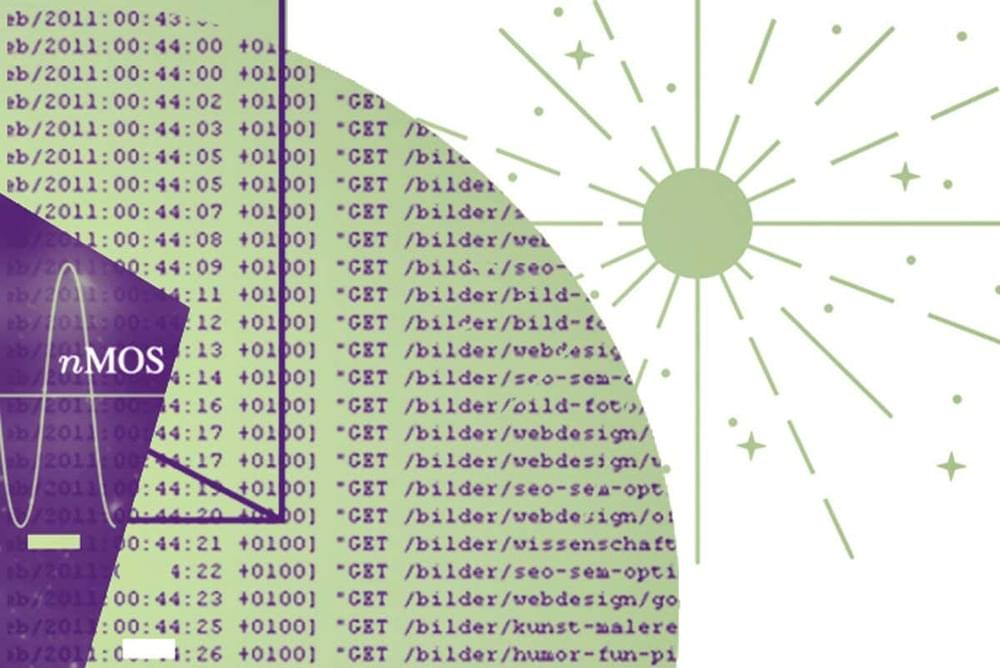Get the latest international news and world events from around the world.
This is the Future of Moore’s Law — Intel’s Incredible Plans
Intel has just announced their plans to continue Moore’s Law well into the next decade which promises us up to a 10x performance and efficiency increase through new hardware semiconductor approaches. For example with the help of 3D CPU Transistors or GAAFET. The breakthroughs revealed at IEDM 2021 demonstrate Intel is on track to continue the advancement and benefits of Moore’s Law well beyond 2025 through its three areas of pathfinding and maybe even beat its competitors TSMC and Samsung in the fab business.
–
TIMESTAMPS:
00:00 Moore’s Law isn’t dead.
01:41 What is Moore’s Law?
03:08 How Intel will continue Moore’s Law.
06:22 Intels Competitors.
09:16 Last Words.
–
#intel #hardware #mooreslaw

Criminals use new technology to sell stolen phones northern Nevada
Thieves are getting their hands on some quick and easy cash thanks to a new piece of equipment in town. Kiosks called EcoATM buy used phones. The company touts itself as reducing electronic waste and finding a way to reuse electronics through a simpler and safer way to sell devices. There are 5,000 machines located across the country, including several in northern Nevada. They’re located inside places like Walmart, grocery stores and malls.

A new vaccine that alters senescent cells in a way that pushes the immune system into removing them
Sorry if re-post…
A team of researchers affiliated with a large number of institutions in Japan has developed a vaccine that tricks the immune system into removing senescent cells. In their paper published in the journal Nature Aging, the group describes their vaccine, how it works and how effective it was when given to test mice.
Prior research has shown that part of the aging process is the development of senescent cells —cells that outlive their usefulness but fail to die naturally. Instead, they produce chemicals that can lead to inflammation, aging and a host of other ailments. Prior research has shown that senescence occurs when cells stop dividing. Prior research has also shown that senescent cells can lead to tumor growth in some instances and tumor suppression in others. Senescence also plays a role in tissue repair, and its impacts on the body vary depending on factors such as overall health and age. It is suspected that senescence is related to telomere erosion, and in some cases, environmental factors that lead to cell damage. In this new effort, the researchers have developed a vaccine that creates antibodies that attach to senescent cells, marking them for removal by white blood cells.
The team was able to create the vaccine after identifying a protein made in senescent cells but not in healthy active cells. That allowed them to develop a type of vaccine based on the amino acids in the protein. When injected, the vaccine incites the body to produce antibodies that bind only to senescent cells, and that sets off an immune response that involves sending white blood cells to destroy the senescent cells.

Watch Stars Race Around the Milky Way’s Supermassive Black Hole at Mind-Boggling Speeds
The European Southern Observatory’s Very Large Telescope Interferometer (ESO
Created in 1962, the European Southern Observatory (ESO), is a 16-nation intergovernmental research organization for ground-based astronomy. Its formal name is the European Organisation for Astronomical Research in the Southern Hemisphere.
Researchers design an engine that uses information as fuel
Can information become a source of energy? Scientists from Simon Fraser University (SFU) in Canada devised an ultrafast engine that claims to operate on information, potentially opening up a groundbreaking new frontier in humanity’s search for new kinds of fuel. The study, published in Proceedings of the National Academy of Sciences (PNAS), describes how the researchers turned the movements of tiny particles into stored energy.
Practical demon-keeping
How would an information engine even work? The idea for such a contraption, which at first sounds like it would break the laws of physics, was first proposed by the Scottish scientist James Clerk Maxwell back in 1867. Colorfully named “Maxwell’s demon,” such a machine would theoretically achieve something akin to perpetual motion. Maxwell’s thought experiment was meant to show that it may be possible to violate the second law of thermodynamics, which basically states that the amount of entropy, or disorder, always increases.

Elon Musk says he’s single and basically living in a ‘technology monastery’ following his split with Grimes
The Tesla billionaire discussed his split from the singer and producer in a recent interview with Time’s Molly Ball, Jeffrey Kluger, and Alejandro de la Garza for its annual “Person of the Year” issue.
“Grimes and I are, I’d say, probably semi-separated,” Musk told Time. “We weren’t seeing each other that much, and I think this is to some degree a long-term thing, because what she needs to do is mostly in LA or touring, and my work is mostly in remote locations like this.”
Musk explained the situation similarly to Page Six in September, telling the publication that he and Grimes had decided to go their separate ways after three years of dating. He said at the time that they still loved each other and “are on great terms” as they coparented their 18-month-old son, X Æ A-Xii.

Elon Musk Says That Politically, He’s a “Utopian Anarchist”
Tesla CEO Elon Musk isn’t one to follow rules, particularly when he thinks they’re bogus.
The billionaire likes to envision a world, or perhaps a much smaller society on Mars, in which everybody can do as they please without a greater hierarchy of power.
“If there’s a utopia where people have access to any goods or services that they want, there’s plenty for everyone,” Musk told Time magazine after being named the Person of the Year today. “If we have a highly automated future with the robots that can do anything, then any work you do will be because you want to do it, not because you have to do it.”
New 2nm IBM’s transistors explained
In this video I discuss technology shrinking: 2nm IBM’s microchip technology and 1nm transistors from TSMC. What is special about it?
#2nmIBM #2nmChip #1nmTSMC
WATCH NEXT:
➞ Chip Design Flow explained: https://www.youtube.com/watch?v=s9MBHzD9pj0
➞ What is special about Apple’s M1 chip? https://youtu.be/qrbBaaqDhqo.
➞ How to become a Hardware Engineer: https://youtu.be/7z0G_TmErT4
GEAR:
➞ Camera Sony Alpha 7 III: https://amzn.to/3dmv2O6
➞ Lens Sony 50mm F1.8: https://amzn.to/3weJoJo.
➞ Mic Rode: https://amzn.to/3w9PudV
***
➞ Support me on Patreon: https://www.patreon.com/AnastasiInTech.
➞ My Instagram: http://www.instagram.com/anastasi.in.tech/
➞ My Twitter: https://twitter.com/AnastasiInTech.
➞ Subscribe for new videos every week! ❤ And see you in comments.